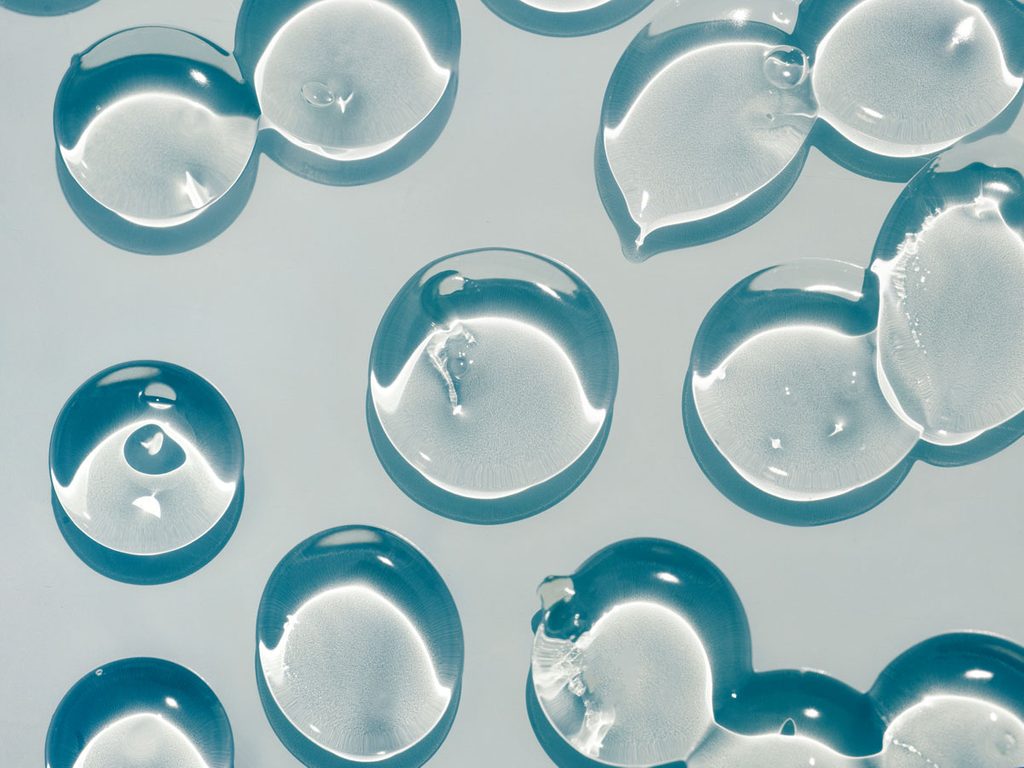Everything You Need to Know About Lube

Lube can transform your sex life, at any age. Here's what you need to know.
Female lubricant (aka lube) is a great thing to keep in your nightstand — it can be key to increased sexual pleasure. But it’s often overlooked by many adults, according to Dr. Nadine Thornhill, a sexuality educator in Toronto, Ont., and, mistakenly, “frequently thought of as only relevant when having anal sex.”
But with so many options readily available, shopping for lube can be a bit overwhelming. So before wandering the aisle of your local drug store or scrolling through a popular sex shop online, it’s important to know exactly what you’re shopping for.
Is using lube safe?
In a word, yes. “It does not contain hormones, have virtually any body-wide side effects, or impact a woman’s reproductive function,” says Dr. Gabrielle Cassir, a gynecologist in Montreal, Que.
How do I know if I should be using lube?
Besides enhancing sexual pleasure, lube is geared towards easing friction and discomfort from dryness during intercourse. “There’s this myth that seems to persist in our society: If you are sufficiently aroused and functioning properly, your vagina will automatically get really wet,” says Thornhill. “This may certainly be true for some people, but it’s not true for everyone.”
Even though a lubricant can be beneficial at any age, it can be especially helpful to women who have had both of their ovaries removed (to treat or prevent cancer), recently given birth and are breastfeeding, or going through perimenopause and menopause. “A lack of vaginal lubrication is a common symptom that a lot of women experience at different stages,” she says, adding that psychology and mood also play a role. “It’s a lot more common than people maybe realize.” Cassir agrees that a lot of women mistakenly think that dryness is a sign that something’s wrong with them. “It’s very common to experience some sort of shame, fear or anxiety around vaginal dryness,” she says.
What kinds of lube are there?
There are three main types of lube: water-based, silicone-based, and oil-based. Dr. Cassir always recommends water- or silicone-based products — but as with any lubricant, she cautions that irritation and burning are possible (but rare) side effects.
Water-based lube is safe to use with latex condoms, sex toys, and diaphragms. (Canada’s largest online adult store, PinkCherry, listed a water-based lubricant as their top product sold in 2019.) However, if you’re looking for a product that will last a bit longer and not absorb as easily into the body after application, Dr. Cassir encourages using a silicone-based lube. The University Health Network (UHN) suggests women use a silicone-based formula if they have sensitive skin or are prone to yeast infections or urinary tract infections.
While oil-based formulas tend to last even longer than a water- or silicone-based lubricant, they can cause damage to latex condoms and diaphragms. “This makes them less effective at preventing sexually transmitted infections or pregnancy,” warns Dr. Cassir. (Health Canada, however, says an oil-based lubricant can be used with some synthetic condoms). The UHN also advises to never use an oil-based product internally, as it can change the pH level in your vagina and make it easy for bacteria to grow.
What do hormones have to do with dryness?
Women in their late 40s and early 50s tend to start to see changes in their natural lubrication. That’s because lower estrogen levels — which go hand in hand with perimenopause and menopause — can result in vaginal dryness. In addition to causing pain and discomfort during intercourse, women tend to experience vaginal itching, burning, and irritation. According to the UHN, there are estrogen treatments available to help reduce dryness and other menopausal symptoms.
Next, learn about the sex problems you should take seriously.




